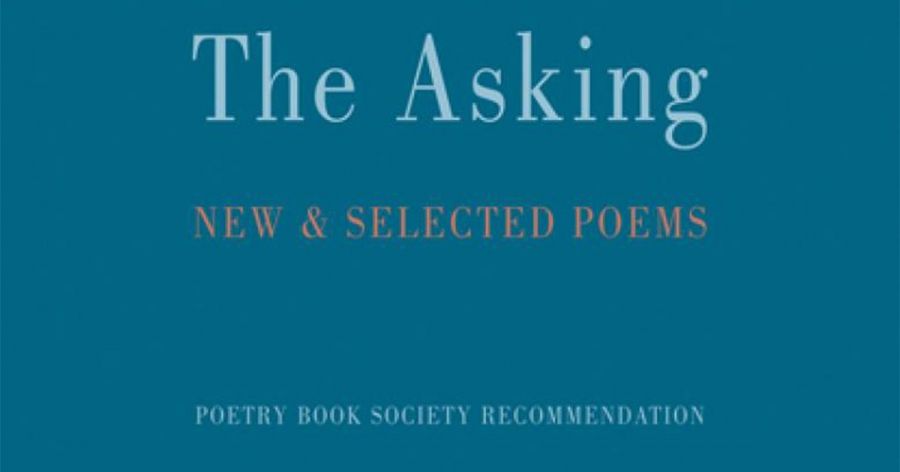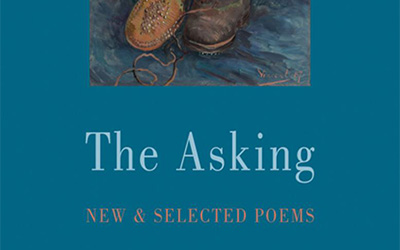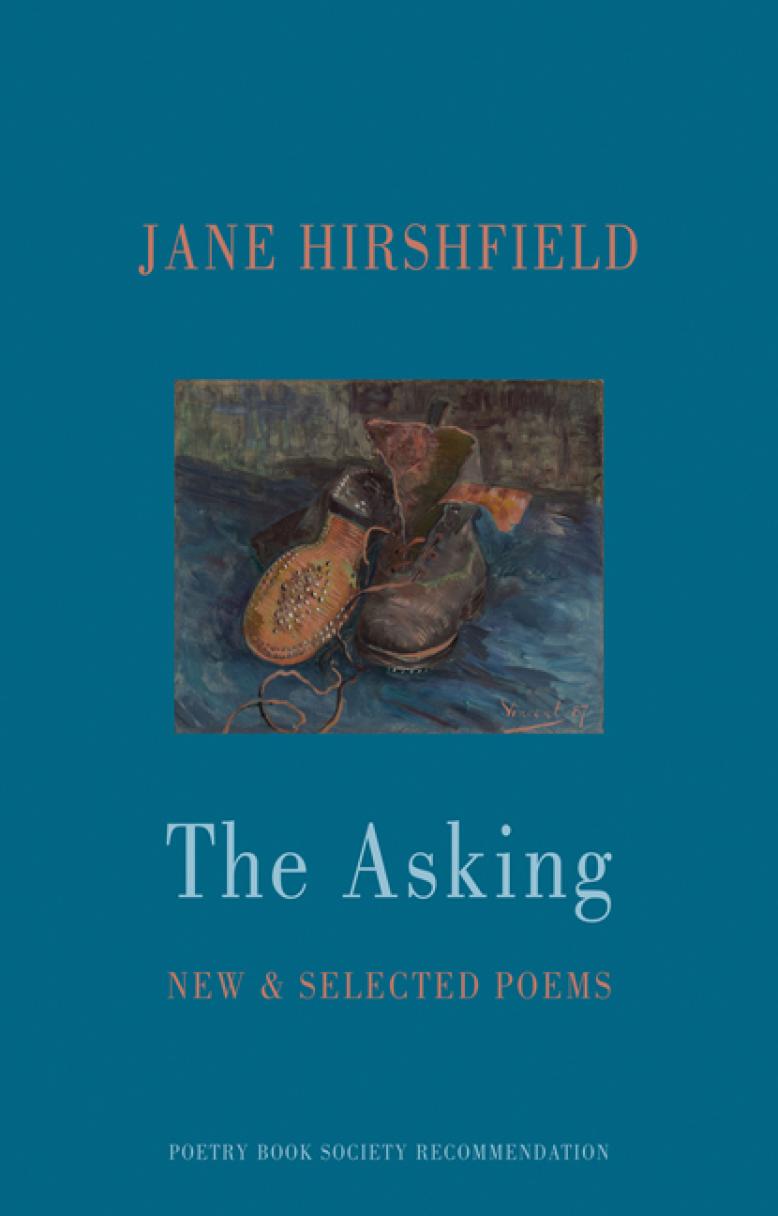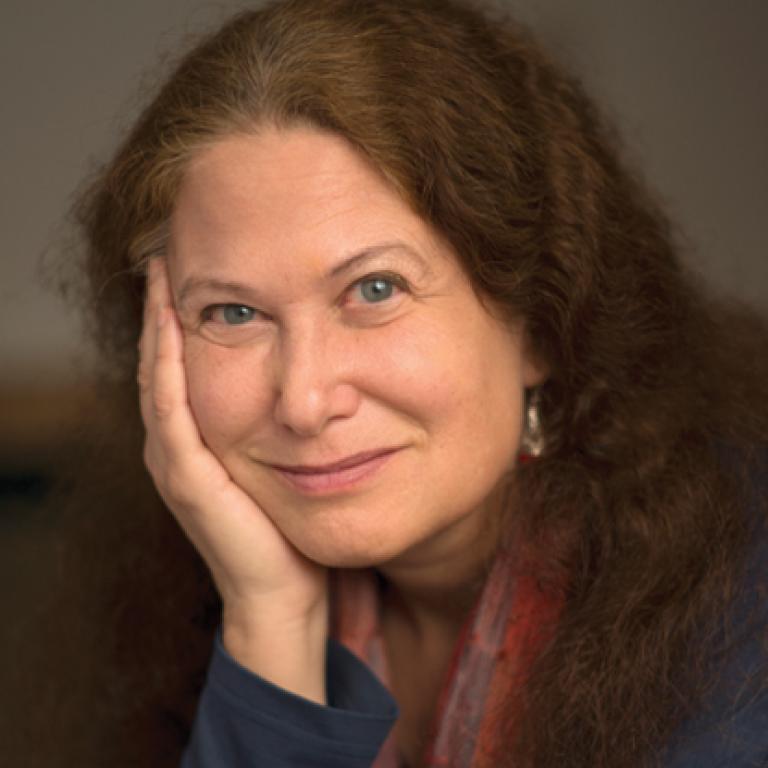
- Free Article: No
- Contents Category: Poetry
- Review Article: Yes
- Article Title: ‘Let them not say’
- Article Subtitle: Poems for a changed future
- Online Only: No
- Custom Highlight Text:
Jane Hirshfield writes a poem on the first day of each year. ‘Counting, New Year’s Morning, What Powers Yet Remain to Me’ is one of the new poems in The Asking, along with poems selected from nine collections published since 1982. It begins with a question the world asks (‘as it asks daily’): ‘And what can you make, can you do, to change my deep-broken, fractured?’
- Featured Image (400px * 250px):

- Alt Tag (Featured Image): Felicity Plunkett reviews ‘The Asking: New and Selected Poems’ by Jane Hirshfield
- Book 1 Title: The Asking
- Book 1 Subtitle: New and Selected Poems
- Book 1 Biblio: Bloodaxe Books, £14.99 pb, 341 pp
- Book 1 Cover Small (400 x 600):

- Book 1 Cover (800 x 1200):

Along with the arrival of new wars, new stones, the speaker finds what endures: ‘Yet joy still stays joy. Sequins stay sequins.’ Then there are words, which ‘still bespangle, bewilder’. The poem’s ending produces the collection’s title, The Asking. Although the speaker wakes answerless, still the day urges: ‘don’t despair of this falling world, not yet’ and, after a pause: ‘didn’t it give you the asking’.
This question, without a question mark, rests between asking and answering. The poem’s depiction of everyday actions and reflection – steaming greens, writing a letter to oppose violence – expresses one of its through-lines. Hirshfield’s line is a fulcrum, weighing opposites to open questions. The unsaid and unknown sit on the page’s white space, which she never fills with certainty or sermon. Poised between loss and gain, restraint and directness, Hirshfield’s poems never rush towards closure or pretend to know. Instead, they are oriented towards witnessing and porousness, and dedicated to expressing the questions humanity faces. ‘Let Them Not Say’ was published in Ledger in March 2020, just as Covid restrictions began. Written in 2014, with the climate emergency in mind, it was first shared by the American Academy of Poets in 2017 as part of its Poem-a-Day program on the day of Trump’s inauguration. It became their most widely circulated poem. It begins: ‘Let them not say: we did not see it. / We saw.’
The poem imagines a future generation that might not need to question what ours has or has not done. Hirshfield describes it as a poem ‘hoping to make itself someday incomprehensible’. Its gaps suggest intervals of time, between now and moment of future reckoning. Its responses are blunt: ‘We saw.’ ‘We heard.’ ‘We did not-enough.’ Its lines urge action and flower into an image of ‘A kerosene beauty’, next to which the poem’s ‘we’ warms up, reads, praises while the world burns. Yet the poem emphasises the importance of our actions. As invitation and invocation, it holds open hope as despair burgeons; hope dependent on action as well as reflection.
In a housing project in New York built for World War II veterans, Hirshfield was raised by non-religious Jewish parents, whom she once shocked by announcing that she liked the idea of becoming a Catholic nun. While the ideas of the divine she encountered in childhood didn’t resonate with her, the idea of contemplation did. Decades later she became a Zen monk.
Hirshfield is meme-famous for a comment about poetry and Zen: ‘Zen pretty much comes down to three things – everything changes; everything is connected; pay attention.’ Now, she finds the last two words sufficient. Hers is a poetics of paying attention, a currency endangered by the pace of our lives and the amount of information we access. Attention remains the ‘natural prayer of the soul’, as Walter Benjamin writes, alluding to French philosopher Nicolas Malebranche.
Often, through paying attention to the small, the poems expand. ‘The Bowl’, published in Ledger, spoke to the pandemic conditions people suddenly faced. It begins simply: ‘If meat is put into the bowl, meat is eaten.’ This springs from Buddhist monks’ practice, known in Japanese as takuhatsu, of accepting whatever is placed in a bowl they hold out. Although the monks are vegetarian, if meat is given as alms, ‘meat is eaten’. Our own experience is given:‘[w]ars, loves, trucks, betrayals, kindness’. In an interview with Krista Tippett of the podcast On Being, Hirshfield comments that the poem considers the question: ‘How can I meet this in a way which both lets me open my eyes the next day and also, perhaps, if I’m lucky … be of service to a changed future?’
 Jane Hirshfield (Curt Richter via Bloodaxe Books)
Jane Hirshfield (Curt Richter via Bloodaxe Books)
Part of her restraint involves distillation and sparseness, yet metaphor, opening the window to the imagined, is central. Hirshfield’s lines often place the figurative alongside the closely observed. In her TED-Ed animation ‘The Art of the Metaphor’, she argues that poetry’s power lies less in literal truth than in metaphor’s power to ghost ‘past the logical mind’. Metaphors are ‘like handles on the door of what we can know and what we can imagine’.
So, a poem’s titular opening line contains the literal and figurative: ‘Body, mind of the ransacked thrift shop.’ ‘Vinegar and Oil’ begins with a contrasting metaphor: ‘Wrong solitude vinegars the soul, / right solitude oils it.’ The last lines of ‘A Blessing for a Wedding’ ask: ‘Let its the fierceness and tenderness hold you / Let its vastness be undisguised in all your days.’ The beautiful love poem ‘For What Binds Us’ counts ‘strong forces, weak forces’ among what binds ‘two people [who] have loved each other’ and finds in scars a fabric ‘nothing can tear or mend’. The metaphor shifts from flesh to fabric, human to non-human as the poem celebrates what is called ‘proud flesh’ on horses.
Humour radiates through the poems. In ‘Advice to Myself’, the speaker finds a computer file with this name, empty: ‘thus I meet myself again / hopeful and useless.’ In ‘Like Others’, when ‘Fire!’ is shouted: ‘some ran toward it, / some away – // I neck-deep among them’. Finding this likeness and connection is part of the poetry’s wisdom. In another poem, Hirshfield writes ‘I go out, / I count myself part’. It is this decades-long practice of generosity, attentiveness, and humility, and the poems that are arise from it, that The Asking celebrates.


Comments powered by CComment